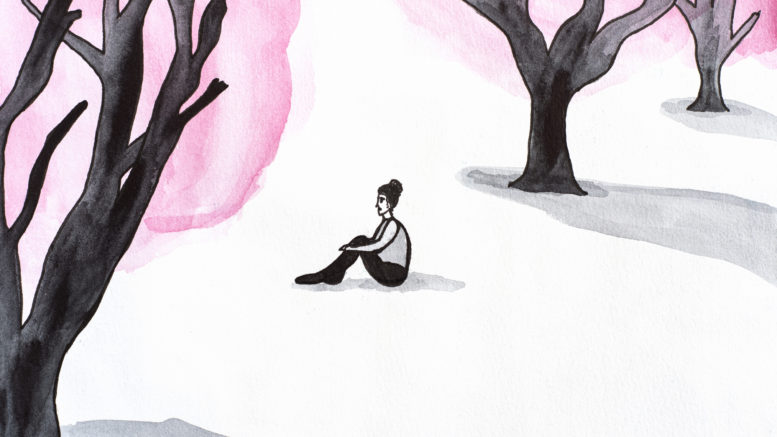After having a baby, many women feel a lot of emotions rushing through them, one of which could be deep sadness. If this sadness persists it could lead to a state of depression known as postpartum depression.
Post-partum depression can begin a few days after delivery or sometimes months after. The symptoms are just like regular depression and in addition, the mother would likely withdraw from the child. Approximately one out of six women in the United States fall into post-partum depression, so if you feel awkward after delivering your baby, you are not abnormal.
Consulting a certified medical professional remains the best way to deal with this and eventually overcome it. You can also cultivate normal daily life habits to ease out the depression stage and make treatment more effective.
Here are a few things you can do to cope with post-partum depression and help you get back to enjoying motherhood as soon as possible. Also you can Book an appointment today with Dr Bih Bikelle MD who is a licensed professional and mother of three by calling 904 886 0361 or visiting www.bpsychiatry.com. Your journey past post-partum depression is just a call away.
Eat Healthily:
Eating good food seems to be a remedy to almost everything, and post-partum depression is no exemption. Try to eat healthy meals rich in vitamins, like fruits and vegetables to boost your immune system. Also, drink a lot of water to stay hydrated and less irritable. Your body needs all the support it can get during this phase.
Exercise:
It’s not news that exercise helps improve overall mood. Taking out 20-30 mins at least 3 times a week to do some exercise will give you a mood boost, would likely make you feel better about yourself. You will feel confident, vibrant, and ready to take on the day. It might also help to start closing the gap between you and your baby.
Rest:
Going through nine months of pregnancy and eventual delivery is no piece of cake. The stress might be causing you to be stressed and withdraw from your baby. Take time to rest, consider increasing your sleeping hours even though you might be breastfeeding. You can get a breast pump so that there’s milk available for the baby throughout the night without you having to lose sleep breastfeeding. You need to get better for yourself and your baby and this will help.

Do things you Love:
Consider taking on old hobbies like reading a favourite book, watching a good and exciting movie, listening to music, or simply taking a walk. You need to uplift your spirit and these activities might help you achieve that in time.
Try breastfeeding:
Some studies have shown that breastfeeding your baby can help reduce symptoms of post-partum depression. This is probably because of the hormones produced when breastfeeding that enhances the connection between mother and child. Although there is a condition known as Dysmorphic Milk Ejection Reflex (D-MER) where a mother might develop a sudden rush of sadness and agitation as a result of breastfeeding. Ultimately, ensure that you go for the best breastfeeding method for you.
Rely on your support network:
Lean on people around you who are helping you get through this period. Talk to them and explain your feelings, also have them help you with taking care of your baby. This will give you more time to pay attention to yourself and overcome post-partum depression faster.
Consider Psychotherapy:
Seeking professional help is also a very good option it is necessary. Speaking to mental health professional will help you better itemize your goals and plans to overcome PPD. You would get firsthand professional tips and advice to make you feel better and stay in control of your mood and feelings. Your doctor might also prescribe antidepressants that are safe to use. If you have concerns about it affecting your breast milk you should talk to your doctor about it.

Join a support group:
Being a member of a group of women going through the same thing might be a good idea. Canadian Journal of psychiatrists performed a study that shows that talking to a group of people about how your feel might improve your mood. You would also meet experienced mothers who can tell you about the journey to total freedom from PPD and this could be inspiring. Ensure to chat with other new moms and make friends within the group.
Conclusion
Post-partum depression can be challenging, but with the right attitude, habits, and medications, it can be overcome in no time. Ensure to call your doctor if you feel any sudden rush of emotions or start having some very depressing thoughts. Try not to be isolated but surround yourself with people you love and who also love you. Having loved ones around us has a way of boosting our moods.
Lots of women around the world suffer from post-partum depression and struggle with connecting with their children after birth. With these tips, the journey to depression-free motherhood will be easier.
